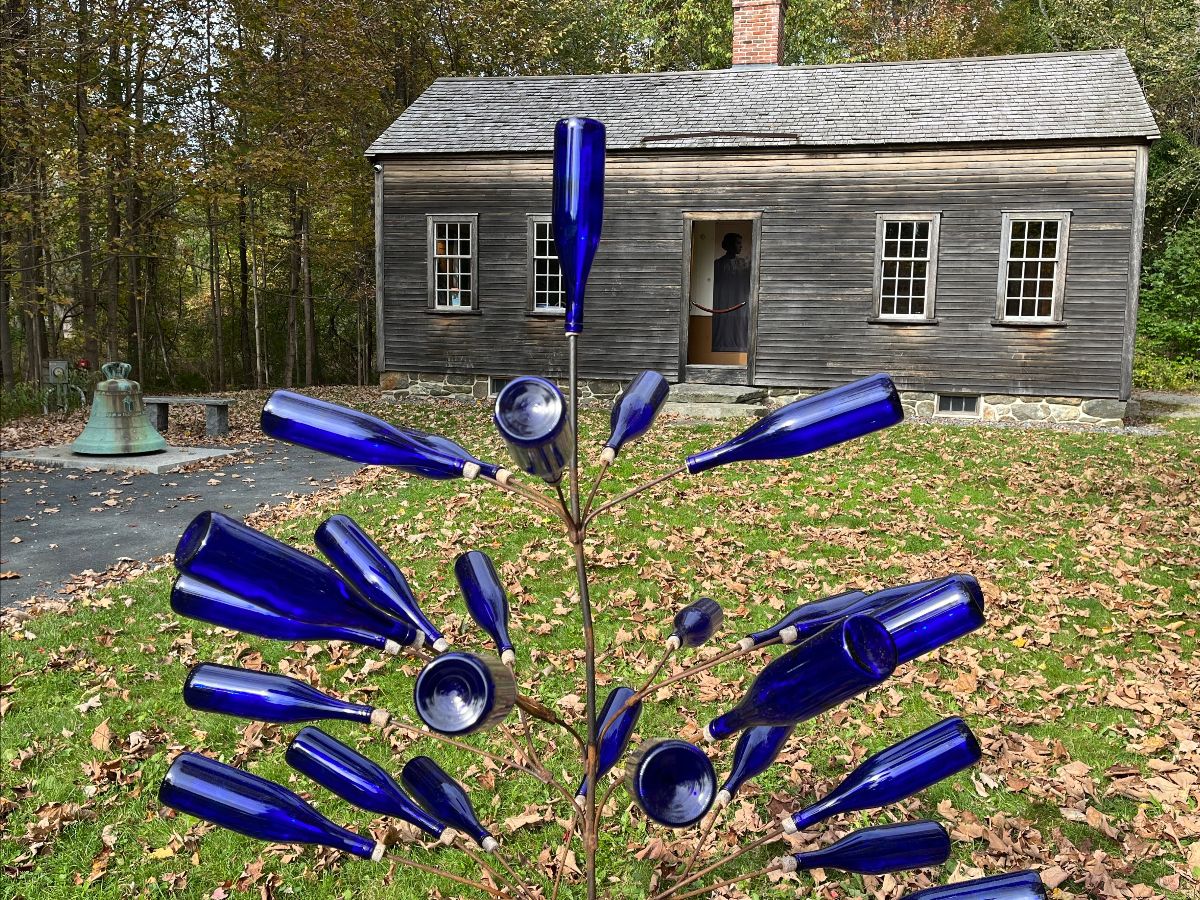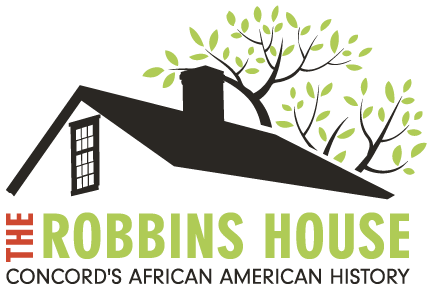The Robbins House Wishes you a Happy and Healthy New Year

The oldest existing mention of slavery in Massachusetts was recorded in 1638, when Africans arrived in the colony on the slave ship, Desire, built in Marblehead the previous year. Massachusetts was the first American colony to formally sanction human bondage under the Body of Liberties law, which was enacted in 1641. Slavery remained legal in Massachusetts until the waning days of the American Revolution.
The installation by Black Coral of the bottle tree on The Robbins House front lawn highlights the complicated history of enslavement in Concord and Massachusetts as a whole. Originating in the Congo in West Africa and dating back to at least the 9th century, the bottle tree tradition was brought to the United States by enslaved people, most notably those who lived in Georgia and South Carolina. This tradition as passed down through the generations of enslaved, and later free Black communities, marking the survival of a cultural practice despite the bonds of slavery. The distinctive blue bottles were placed on tree limbs to capture the energy, spirit and memories of the ancestors.
The bottle tree installation on The Robbins House lawn will continue into the spring of 2024. We hope that you will use this contemplative space to think of the intersectionality between enslavement and freedom that continues to impact our modern American society today.

